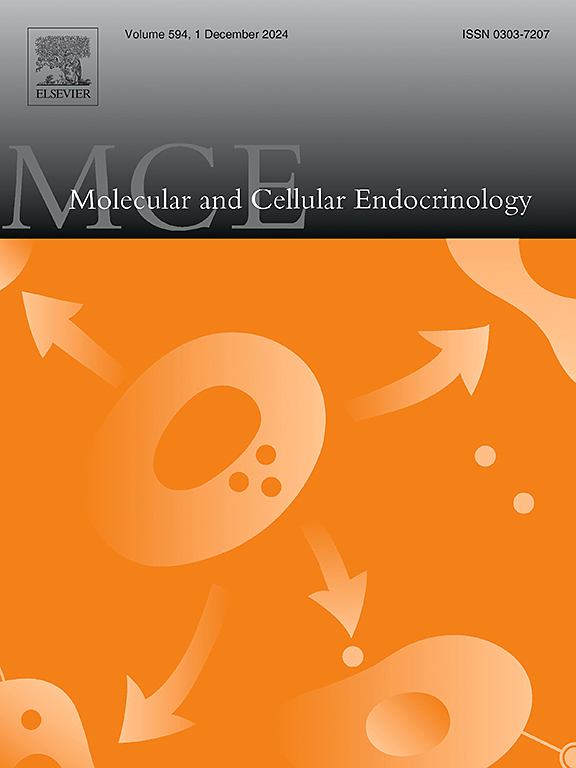通过 RNA 测序和共表达分析确定小儿肾上腺皮质肿瘤的预后枢纽基因和关键通路。
IF 3.8
3区 医学
Q2 CELL BIOLOGY
引用次数: 0
摘要
小儿肾上腺皮质肿瘤(ACT)是预后不确定的罕见疾病,在巴西南部和东南部发病率很高。小儿肾上腺皮质肿瘤具有高度异质性,因此确定这些肿瘤的预后标志物具有挑战性。我们对 14 个小儿 ACT 样本进行了转录组分析,并比较了临床预后良好和不良的病例,以确定对预后有重要意义的基因。比较结果显示,在预后良好和预后不良的病例中,有1257个基因表达不同。在这些基因中,60个中枢基因中有15个与五年无事件生存期(EFS)显著相关,其中10个基因在一个独立的小儿肾上腺皮质癌芯片数据集(GSE76019)中对预测ACT预后具有显著的诊断价值。N4BP2、HSPB6、JUN、APBB1IP、STK17B、CSNK1D和KDM3A的过表达与较差的EFS相关,而ISCU、PTPR、PRKAB2、CD48、PRF1、ITGAL、KLK15和HIST1H3J的低表达与较差的预后相关。总之,这些发现强调了这些枢纽基因的预后意义,并表明它们在小儿 ACT 进展中发挥着潜在作用,是临床预后的有用预测因子。本文章由计算机程序翻译,如有差异,请以英文原文为准。
Identifying prognostic hub genes and key pathways in pediatric adrenocortical tumors through RNA sequencing and Co-expression analysis
Pediatric adrenocortical tumors (ACTs), rare conditions with uncertain prognoses, have high incidence in southern and southeastern Brazil. Pediatric ACTs are highly heterogeneous, so establishing prognostic markers for these tumors is challenging. We have conducted transcriptomic analysis on 14 pediatric ACT samples and compared cases with favorable and unfavorable clinical outcomes to identify prognostically significant genes. This comparison showed 1257 differentially expressed genes in favorable and unfavorable cases. Among these genes, 15 out of 60 hub genes were significantly associated with five-year event-free survival (EFS), and 10 had significant diagnostic value for predicting ACT outcomes in an independent microarray dataset of pediatric adrenocortical carcinomas (GSE76019). Overexpression of N4BP2, HSPB6, JUN, APBB1IP, STK17B, CSNK1D, and KDM3A was associated with poorer EFS, whereas lower expression of ISCU, PTPR, PRKAB2, CD48, PRF1, ITGAL, KLK15, and HIST1H3J was associated with worse outcomes. Collectively, these findings underscore the prognostic significance of these hub genes and suggest that they play a potential role in pediatric ACT progression and are useful predictors of clinical outcomes.
求助全文
通过发布文献求助,成功后即可免费获取论文全文。
去求助
来源期刊

Molecular and Cellular Endocrinology
医学-内分泌学与代谢
CiteScore
9.00
自引率
2.40%
发文量
174
审稿时长
42 days
期刊介绍:
Molecular and Cellular Endocrinology was established in 1974 to meet the demand for integrated publication on all aspects related to the genetic and biochemical effects, synthesis and secretions of extracellular signals (hormones, neurotransmitters, etc.) and to the understanding of cellular regulatory mechanisms involved in hormonal control.
 求助内容:
求助内容: 应助结果提醒方式:
应助结果提醒方式:


